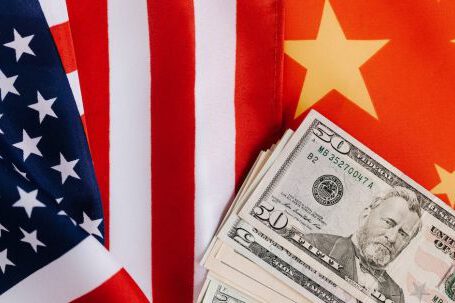The global economy has been experiencing increasing uncertainty and volatility due to the implementation of new trade tariffs. These tariffs, which are being imposed by various countries around the world, have created a sense of unease among investors and businesses alike.
Rising Protectionism
One of the main reasons behind the implementation of these tariffs is the growing trend of protectionism. Many countries are looking to safeguard their domestic industries and protect local jobs by imposing tariffs on imported goods. While this may seem like a reasonable approach on the surface, it has far-reaching implications for international trade and economic stability.
Trade Wars
The imposition of trade tariffs has also led to the emergence of trade wars between countries. As one country imposes tariffs on imported goods, others retaliate by imposing tariffs of their own. This tit-for-tat approach has created a vicious cycle of escalating trade barriers, making it increasingly difficult for businesses to operate globally.
Uncertainty for Businesses
These new trade tariffs have created a significant amount of uncertainty for businesses operating in international markets. The sudden imposition of tariffs can disrupt supply chains and increase costs for businesses that rely on imported goods. This uncertainty makes it challenging for businesses to plan and make strategic decisions, leading to a slowdown in investment and economic activity.
Volatility in Financial Markets
The implementation of trade tariffs has also had a significant impact on financial markets. The uncertainty surrounding trade policy has led to increased volatility in stock markets, with investors reacting to each new development in trade negotiations. This volatility makes it difficult for investors to make informed decisions and can lead to sharp fluctuations in stock prices.
Impact on Emerging Economies
The impact of these trade tariffs is not limited to developed economies. Emerging economies, which rely heavily on exports, are particularly vulnerable to the disruptions caused by trade barriers. Many of these countries depend on exports to drive economic growth and create jobs. The imposition of tariffs can severely hamper their ability to compete in international markets, leading to a slowdown in economic growth.
Potential for Economic Slowdown
The uncertainty created by these new trade tariffs has the potential to slow down global economic growth. As businesses become more cautious about making new investments and consumers become more hesitant in their spending, overall economic activity can decline. This slowdown in economic growth can have far-reaching implications for employment, income levels, and overall prosperity.
Navigating the Uncertainty
In the face of this uncertainty, businesses and governments need to find ways to navigate the challenges posed by these new trade tariffs. This may involve diversifying supply chains, exploring new markets, or finding alternative strategies to mitigate the impact of tariffs. Governments can also play a crucial role by engaging in dialogue and negotiation to resolve trade disputes and prevent further escalation.
In conclusion, the implementation of new trade tariffs has created a sense of uncertainty in international markets. Rising protectionism, trade wars, and the resulting uncertainty have impacted businesses, financial markets, and emerging economies. The potential for an economic slowdown underscores the need for proactive measures to navigate these challenges. By finding innovative solutions and engaging in constructive dialogue, businesses and governments can work towards minimizing the negative impact of these trade tariffs and fostering a more stable and prosperous global economy.





